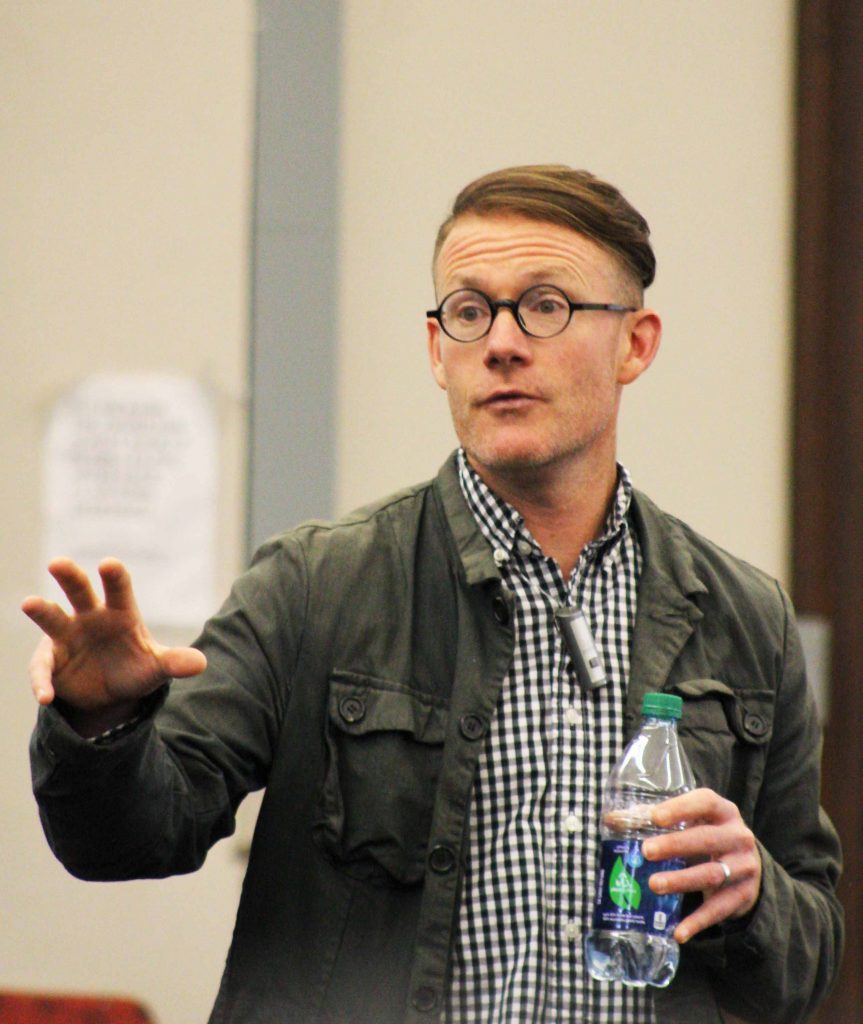Jonathan Mooney didn’t learn how to read until he was 12 years old. He has dyslexia and Attention Deficit Disorder and contemplated dropping out of school as a sixth grader.
At 18, just six years after he learned to read, he was a freshman at Brown University. Five years later, he published his first book.
Mooney, now an award-winning author and disability rights activist, spoke Wednesday afternoon as part of Disability Awareness Month. He spoke candidly about his own struggles as a person with disabilities and encouraged the audience to celebrate differences, rather than degrade them.
“Folks with cognitive and physical differences are often the most demeaned and marginalized in our society. They struggle as much as any minority group in our world,” Mooney said. “But we can build a more inclusive and just culture for those folks that are told they have deficiencies. People with differences have value to give to the world — not despite their differences but because of them.”

Corey Blount, assistant director of Student Disability Services, said hosting an advocate like Mooney can spur change on campus and help get people talking about the ways in which people with disabilities can be empowered.
“We want to generate new ideas and get new perspectives on existing issues and challenges,” he said. “Having a speaker with a lived experience of having a disability — to see that advocacy and support among the community and to see that the world of disability — isn’t seen in a negative way. This is something that is gaining momentum in the social justice field. This generates empowerment and helps grow autonomy.”
Mooney said intelligence is judged too narrowly in academia. In addition to overcoming struggles in the classroom, people with disabilities also have to overcome the stigmas society places on them.
“I didn’t overcome dyslexia,” he said. “If I overcame anything, it was ‘dysteachia.’ I overcame being made to feel stupid. We conflate being a smart person with being good at school. We also conflate intelligence at an early age with reading. We put the problem in the person — rhetorically in the language we use and then structurally. We make that difference the problem.”
Mooney said when the education system tries to fix students rather than celebrate who they are, it does them a disservice.
“When all we do is talk about what’s wrong with somebody, we lose sight of what’s right,” he said. “When all we do is fix, the message to the person is that they’re broken. And nobody lives a meaningful life broken.”
Mooney suggested that society must adapt and become a better place for those living with differences by creating spaces that are welcoming.
“We should be holding ourselves accountable to build environments, places of work, communities and schools that are universally designed for the continuum of brains and bodies we know are, paradoxically, normal,” he said.
Rhett Unbehagen, a fifth-year banking and finance major, said that, as a person living with a disability, hearing Mooney talk about accommodation and inclusion inspired him.
“(Accommodations) are something that we don’t really talk about,” he said. “We talk about inclusion. We talk about social constructs of disabilities, but we don’t really talk about the behavior around them a lot. That’s important to me, especially as someone with an invisible disability, because I’m the type of person who doesn’t care how people look at me, but I do care about having access to the same things that other people do.”






